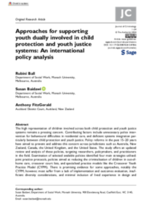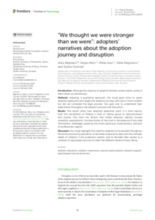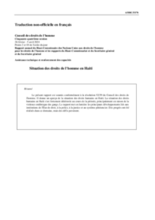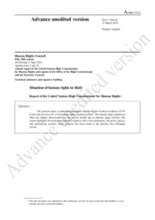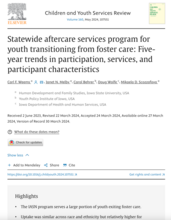This page contains documents and other resources related to children's care in the Americas. Browse resources by region, country, or category.
Displaying 141 - 150 of 3192
This study offers an updated review and analysis of policy reforms across both the child protection and youth justice systems in jurisdictions such as Australia, New Zealand, Canada, the United Kingdom, and the United States, targeting researchers, policymakers, and practitioners in the field.
Adopting a qualitative approach, this study gave voice to seven adoption applicants in Romania who began the adoption journey with one or more children but did not complete the legal process. The goal of the researchers was to understand their experiences throughout the adoption process and disruption. The present study is part of a larger research project that focused on the resilience of the adoptive family in Romania.
A federal judge is expected to rule soon on whether the government must provide shelter, food and medical care to minors while they await processing.
Le présent rapport est soumis conformément à la résolution 52/39 du Conseil des droits de l'homme. Il donne un aperçu de la situation des droits humains en Haïti. La situation des droits humains en Haïti s'est fortement détériorée au cours de la période, principalement en raison de la violence endémique des gangs. Le rapport met en lumière les principaux développements liés aux institutions de l'État de droit, à la police, à la justice et au système pénitencier. Des progrès ont été réalisés dans ce domaine, mais des défis persistent.
This report provides an overview of the human rights situation in Haiti which has sharply deteriorated over the period, mainly due to endemic gang violence. The report highlights the main developments related to rule of law institutions, the police, justice, and penitentiary systems.
The purpose of this study was to examine trends in participation and understand the experiences of youth transitioning from foster care who were involved in the Iowa Aftercare Services Program.
As police and gangs battle it out in the streets of Haiti almost everyday, NBC News' Ellison Barber takes a deeper look into the conditions of orphanages there. The orphanage resides in an area where you don't hear gunfire, and where there is more optimism.
A new report by the UN describes the "outrageous practices" used by gangs in Haiti to brutalise, punish and control the civilian population. It says that the gangs, which are estimated to control more than 80% of the capital, Port-au-Prince, recruit and abuse children, sometimes killing those who try to escape. UN Human Rights chief Volker Türk chief said the situation was "cataclysmic".
This convergent mixed methods study builds knowledge surrounding preparedness among a sample of young adults with histories in out-of-home care in the U.S.
After he was snatched, Antonio Salazar-Hobson didn’t see his family for 24 years. His desire to return to his mother, and his discovery of a higher purpose, helped him navigate a path through hell.


